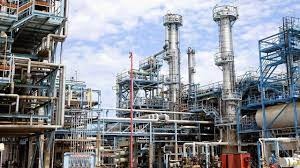Mele Kyari, the GCEO of Nigeria National Petroleum Company Limited (NNPCL), has revealed that President Bola Tinubu has directed the implementation of palliative measures to mitigate the impact of removing fuel subsidies on the Nigerian population. Kyari strongly asserted that there is no turning back on the removal of subsidies, as it has become evident that Nigeria can no longer sustain the financial burden associated with such payments. These disclosures were made by the NNPCL boss after a closed-door meeting with members of the ruling All Progressives Congress (APC) National Working Committee (NWC) at the party’s national secretariat in Abuja on Thursday. Kyari also stated that NNPCL will no longer serve as the sole importer of oil in the country.
“In the present circumstances, we are gradually implementing a flexible and unified regime. This will provide everyone with access to foreign exchange and facilitate an ongoing transition,” Kyari explained. “NNPC cannot continue to function as the sole importer. We anticipate that this practice will fade away, allowing the market to stabilize itself.”
Kyari confirmed the ongoing rehabilitation efforts of the nation’s four refineries, assuring that one of them will commence operations this year. He provided a timeline, stating that the second refinery will be operational next year, followed by the third in 2025.
Observing the unsustainable nature of the subsidy regime, Kyari highlighted the accumulation of subsidy bills. “The country is unable to reimburse NNPC for the funds expended on subsidies. Therefore, pricing petroleum based on market dynamics is the appropriate course of action at this time. We believe this will ultimately benefit the entire nation in the long run,” he expressed. Kyari acknowledged President Tinubu’s directive for engagement and the implementation of palliatives, expressing confidence in their realization.
Regarding subsidy funding, Kyari revealed that although provisions were made for subsidies in 2022, not a single Naira was allocated to finance them in 2023. “Furthermore, despite our fiscal obligations, we still have a net balance of over N2.8 trillion that should have been repaid by the federation to NNPC,” he disclosed. He stressed that having a negative balance of N2.8 trillion would deter any African company from lending. While the subsidy provision exists on paper, there is no actual funding, rendering it non-existent. Kyari emphasized that the liquidity challenges prevent them from continuing to bear the burden, as it would lead to defaults by NNPC, which ultimately affect the country’s borrowing capacity, including that of sub-national entities.
Kyari highlighted the benefits of subsidy removal, citing the bond market’s positive response within 24 hours of President Tinubu’s announcement that subsidies were abolished. He noted that Tinubu’s objective of achieving 7% GDP growth would be hindered by the distortion caused by subsidies in demand and consumption patterns. Kyari explained that these two elements, the subsidy issue and balancing the apex market, are significant concerns for global investors and partners.
They recognize the substantial financial burden imposed by subsidies and understand that the country may struggle to meet its debt obligations. The average monthly subsidy level of N400 billion before the removal implies that funds equivalent to a major capital project were being utilized each month, despite their unavailability. Kyari acknowledged the common argument that the masses will suffer and inflation will be impacted by the significant price increases. However, he emphasized that market forces dictate the outcomes and subsequent fluctuations.










